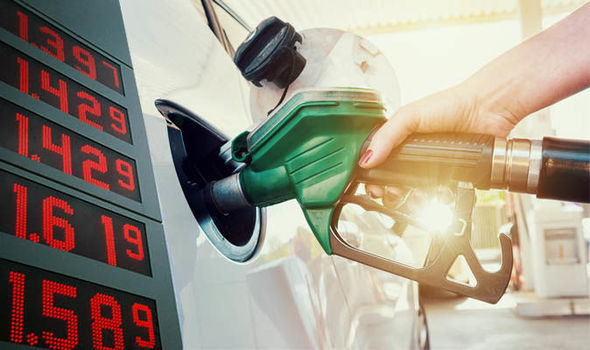This post has already been read 1742 times!
The Major Oil Marketers Association of Nigeria has said the pricing template for Premium Motor Spirit should be reviewed regularly to ensure that the price of the commodity reflects the reality on the ground.
The PUNCH had reported last week that the landing cost of the PMS being imported into the country had risen to at least N205 per litre on the back of the recent increase in global oil prices, putting more pressure on the Nigerian National Petroleum Corporation.
The Chairman, MOMAN and Managing Director, MRS Oil Nigeria Plc, Mr Andrew Gbodume, said the nation’s current business model for the distribution of petroleum products was unsustainable.
Gbodume, who stated this on Monday at a press briefing, commended the Pipelines and Product Marketing Company, a subsidiary of the NNPC, for its efforts over the last few months in ensuring consistent supply of petroleum products within the country.
He stated, “The PPMC has demonstrated its resolve in guaranteeing a non-reoccurrence of the scarcity the nation experiences at the end of 2017 and quite frankly has done well so far.
“However, the NNPC, being the sole importer and supplier of petroleum products in Nigeria at the cost incurred, it should be clear to all Nigerians that this policy direction is not sustainable.”
According to MOMAN, the path to fully achieve a sustainable operating environment for the Nigerian petroleum industry begins with the downstream private sector.
“We feel the time is now to encourage a well-informed and honest debate among ourselves as Nigerians on our downstream pricing policy, showing sensitivity to the fears of Nigerians and the challenges we face as a people and as an economy to arrive at an equitable but sustainable business model,” Gbodume said.
On the pricing of petroleum products, he added, “We have a template and we are expected to follow the template. But what we should be looking at is a situation whereby the template is regularly visited, because we know that as of the time the template was worked upon and we had a price of N145, the price we are buying crude and petroleum products is not the same.
“So, we should look at a situation whereby the template will be visited regularly, maybe every month or every quarter, to ensure that the price we have has to do with the reality on the ground.
“When we get to start looking at that, the issue of whether there is subsidy or not will come into play, because today, nobody can categorically say that this is the subsidy that is on fuel because we are not importing; it is only the government that is importing. So, it is only the government that can actually tell you that this is the actual price.”
The Petroleum Products Pricing Regulatory Agency, in its Downstream Monitor for January to April 2018, noted that petrol price had continued to rise at the international market, pushing the expected open market price in the country far beyond the recommended pump price of N145/litre.
According to Gbodume, one of the major challenges the Nigerian downstream petroleum sector is still facing is the non-payment of the long outstanding fuel subsidy to oil marketers.
“We appreciate the efforts of the National Assembly, but the non-payment creates a significantly negative impact on the operational efficiency of the downstream sector of the oil industry, thereby placing a severe strain on its efforts to continually invest in infrastructure and raise industry standards. We hope that the debts will be paid in full to the oil marketers as soon as possible,” he added.
[Punch]



